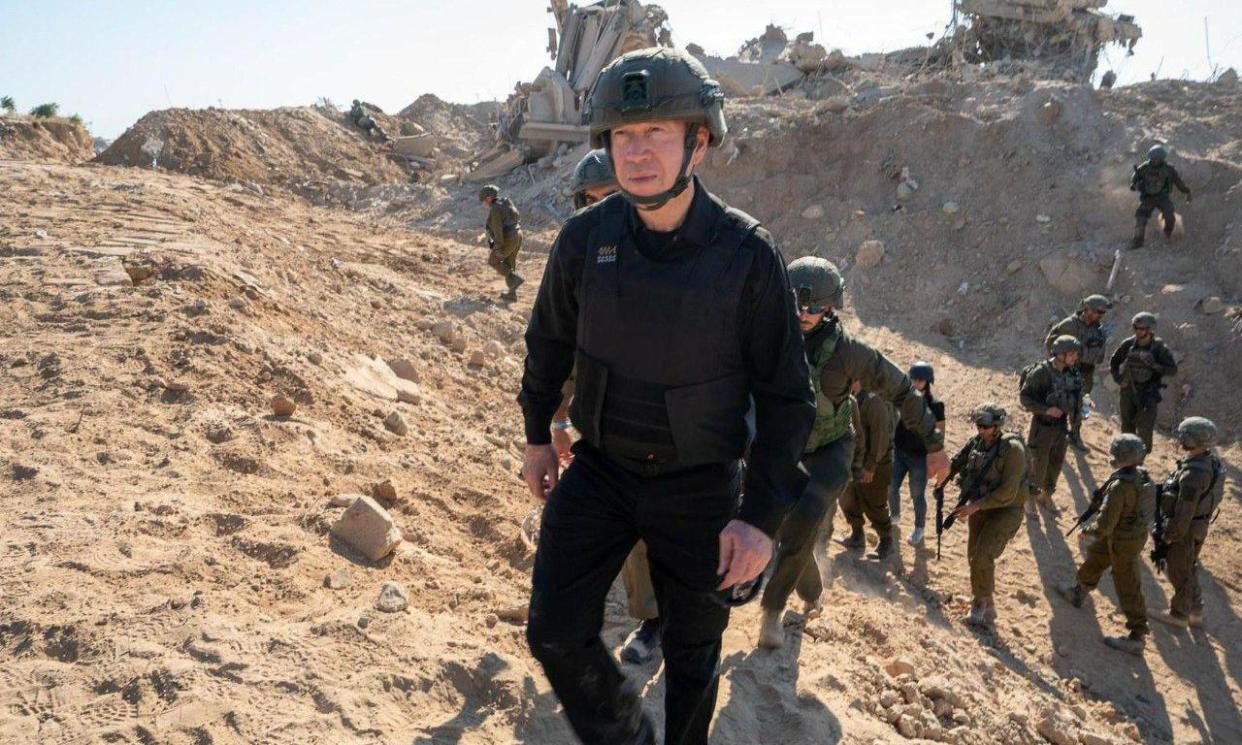What is the Philadelphi corridor, and why is it so important to Israel?

What is the Philadelphi corridor?
The Philadelphi corridor is a ribbon of land about nine miles (14km)s in length and 100 metres wide along Gaza’s border with Egypt, including the Rafah crossing.It was designated as a demilitarised border zone after the withdrawal of Israeli settlements and troops from Gaza in 2005 and runs from the Mediterranean to the Kerem Shalom crossing with Israel.
Before 2005, Israel’s 1979 Camp David peace treaty with Egypt had allowed it to have a limited number of troops in the corridor but no heavy armour. After the Israeli withdrawal, it was the responsibility of Egypt and the Palestinian Authority, with 750 Egyptian police deployed to prevent smuggling, until Hamas took control of Gaza in 2007. It was seized by Israel in May this year as its Gaza ground offensive pushed into Rafah.
Despite numerous anti-tunnel efforts on both sides of the Egypt-Gaza border, including flooding on the Egyptian side and Israeli airstrikes, cross-border smuggling via underground routes has persisted, and been exploited by Hamas to bring in weapons, although there is evidence that in recent years some arms smuggling has been conducted via the Mediterranean.
Egypt continues to reject a heavy Israeli military presence directly on the border and has let it be known that any such presence would threaten the peace treaty.
Why is it an issue now?
The Israeli prime minister, Benjamin Netanyahu, has said he intends for Israeli troops to remain in control of the corridor, including the Rafah crossing, after its capture in May, to the alarm of Egypt.
That has diplomatic ramifications, and more seriously has implications for long-stalled negotiations for a ceasefire with Hamas and the release of Israel hostages held by the group. The IDF has said it had located numerous tunnels in the area of the corridor during operations.
Is this a new thing?
Not entirely. The status of the Philadelphi corridor has long been on Netanyahu’s mind. Even before Israeli troops took the corridor, he said in January, three months into the war in Gaza, that Israel intended to control the Gaza-Egypt border.
In terms of the ceasefire talks, Hamas has claimed Netanyahu added control of the Philadelphi corridor and the Netzarim corridor – a strategic route bisecting Gaza – when negotiations were at an advanced stage, prompting its rejection of the proposals. Netanyahu denies this.
Why is it in the headlines again?
The retrieval of the bodies of six Israeli hostages in a tunnel at the weekend, apparently killed shortly before discovery, has caused an outpouring of anger in Israel over what is seen by some as the abandonment of those held by Hamas.
Only a few days ago, Netanyahu had forced a vote in cabinet to bind Israel to retaining control of the corridor, which was seen as a political strategy to placate far-right members of his government who oppose any concessions.
On Monday, Netanyahu again rejected calls to soften his demand to keep troops in the corridor as the price for a ceasefire deal, saying it was vital for Israel to control what he called a lifeline for Hamas.
The issue has also become increasingly political. On Sunday, the defence minister, Yoav Gallant, clashed with Netanyahu in a cabinet meeting, calling on ministers to reverse Thursday’s vote to remain in the corridor if it helped to reach a deal. The opposition leader, Yair Lapid, has accused Netanyahu of being more interested in placating far-right ministers than in the fate of the remaining hostages.
That point was underlined on Monday by a CNN report in which a source familiar with the ceasefire-for-hostages talks said that Netanyahu’s speech had “torpedoed” any negotiations.
Are there other options than an Israeli military presence on the border?
Experts have suggested technological solutions including surveillance and ground sensors could effectively control efforts to rebuild Hamas’s smuggling tunnels. History suggests, however, that a key component is the political will on Cairo’s part to crack down on smuggling on the Egyptian side, which has sometimes been notably absent, creating problems on both sides of the border.
Egyptian, US and Qatari mediators have been involved in behind-the-scenes efforts to come up with an alternative solution.


